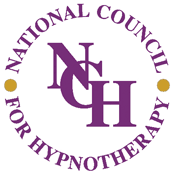
I understand what it can be like to have a phobia even though everyone is different and our minds work in unique ways.
I have overcome my own fear of dental treatment through hypnosis and relaxation techniques.
On a subjective scale of 0 to 10 how strong is your phobia where 10 is very strong and zero is nothing at all? . However discomforting your phobia may have been, we can both agree that fear in the right context – is a natural and good thing to have, in order to help us survive.
In the wrong context we give this fear a name: a phobia. Over hundreds of thousands of year’s humans learned to be frightened of certain thing that threaten their survival s e.g. sabre tooth tigers or other predators to our safety. And this was wise as we didn’t want to get eaten!
A phobic behaviour happens when our mind tags a certain memory with a “fear/fight or flight” tag, inappropriately.
We just want to get away from the stimulus of the phobia… We panic, our breathing may become short, sweaty palms and anxiety occur. Sometimes a phobia might seem funny or odd to other people who don’t have it, but one`s own phobia can be very distressing. That lack of understanding can make the whole thing worse. Help is not far away.
Phobias are far more common than you would think.
And the stimulus that triggers your personal phobic reaction may not be an actual sabre tooth tiger but it can feel like that to you. There are as many stimuli and names for phobias as there are things or people. It is defined as an inapproriate or irrational for excessive fear or an object or a situation that in reality poses little of no danger. Common symptons might include heart racing, sweaty palms, panic or dizzyness.
Sometime, back in the past what many might find a normal situation has been coded in your memory as worth avoiding (at all costs). So when that stimulus occurs, your mind runs its evolved “fight or flight” programme and your phobic reaction kicks in.
Cognitive Hypnotherapy and NLP can break that link.
Memory loops created by the mind that lock that memory (and panic behaviour) into a temporary loop that can be broken.
The mind can say to to itself when it escapes a phobic situation “Well done, we avoided that drama.” A huge hormonal reward is released into the body. It’s like a hormonal carrot and stick learning technique that reinforces and installs a phobia pattern.
Rewards when I avoided it.
Fear and adrenalin when I didn’t.
Cognitive Hypnotherapy suggests that what is learned, can be unlearned. What you believed once upon a time can change. Do remember once upon a time believing in Father Christmas or something like that as a child, that you do not believe now. So beliefs can and do change. So can yours now.
We can do this as slowly or rapidly: over one session, or two or even three sessions.
Cognitive Hypnotherapy and NLP offer a range of interventions including Time Line Therapies, Fast Phobia Cure, Anchoring and others to help you lose your phobia once and for all.
You can soon look forward to a future without this issue. I also teach you how to stay calmer for longer using inspiring relaxation techniques and self hypnosis. How many times would you need to stay calm experiencing your trigger to convince you that you have overcome your phobia and it was gone? 3 or 4 times or more?
What happens in your mind, when, perhaps for the first time, you begin imagine life without this issue.
Although this has not happened yet, I would like you to take a few minutes now just to to relax. Take a nice deep long breath in.
Then exhale slowly as you you imagine what will you be doing differently once it has gone.
Notice what you would believe about yourself having lost your phobia and looking back to when it went away. What will become important to you?
Now make a statement about yourself that will be true of you, once it has really gone, beginning with the words: “I am …”
This statement will become one the building blocks of your new beliefs.
These are very simple first steps to help start your journey and begin reprogramming the way your mind works around your phobic stimulus. We will start using your own patterns of thinking, beliefs and values to help you develop your skills at changing your mind about this. You might soon or recently have enjoyed a glimse of freedom from that unwanted old behaviour we call a phobia.
If I don’t believe I can help you OR if I don’t think you are ready to let go of your phobia now, then I will not take you on as a client.
If I do take you on, I am confident I can help you to a happier future. There is no guarentee but if you are willing to do your part I am happy to do mine and use all my skills and training to help you. I look forward to hearing from you. Take care.





